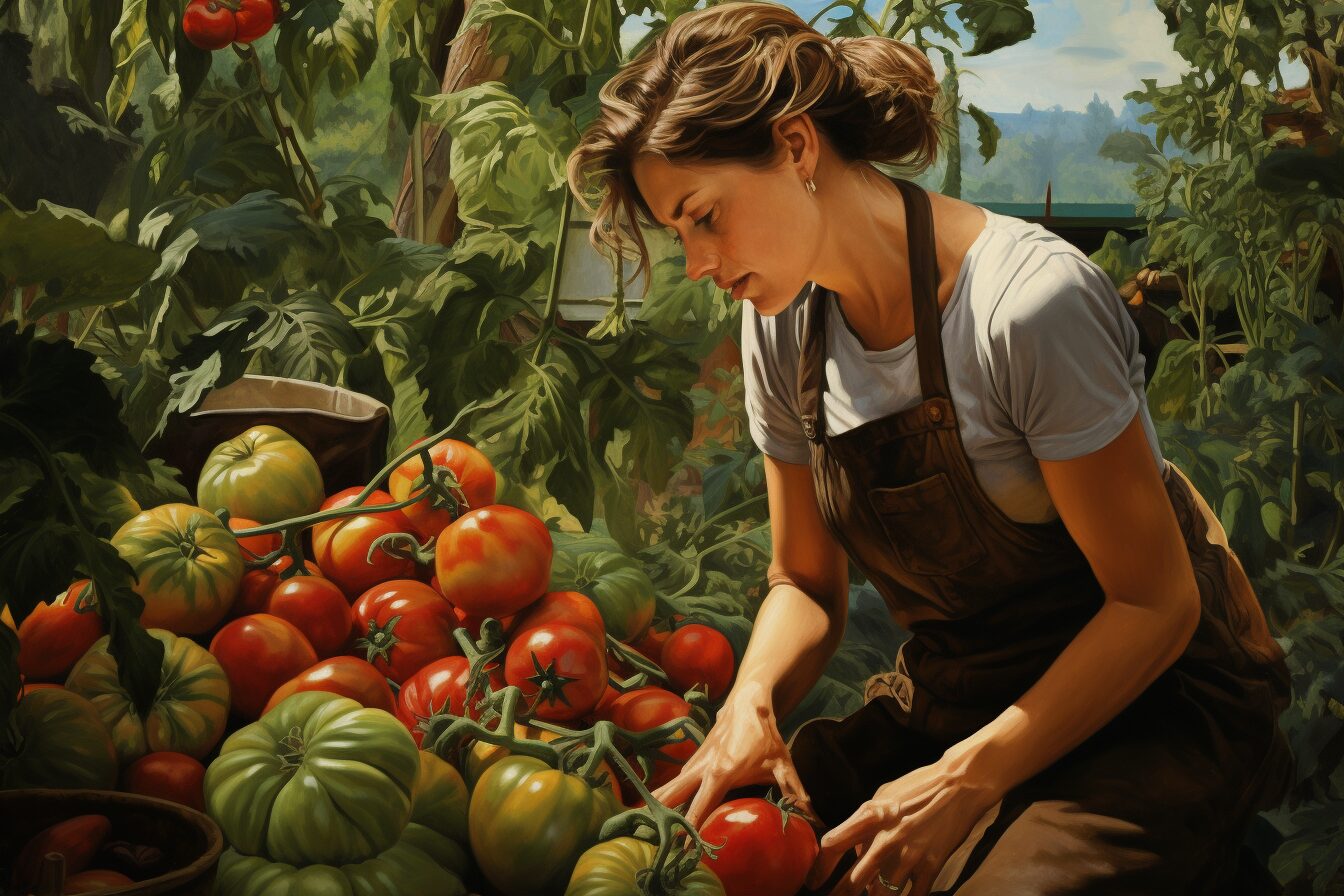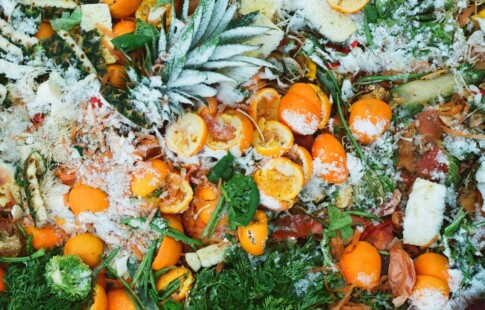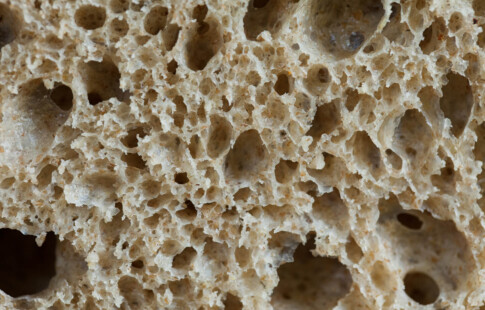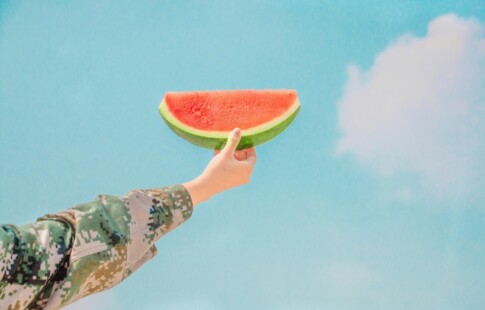
10 Benefits of Growing Your Own Food
We are reader-supported. When you buy through links on our site, we may earn affiliate commission.
Do you dream of sun-ripened tomatoes and fresh, crunchy carrots? Want to get more in touch with nature and save money in the process? Growing your own fruits, vegetables, and even mushrooms is a healthy and delicious hobby that can support a greener lifestyle. Here are 10 benefits of growing your own food.
1. Reducing Food Waste
In the United States, an estimated 30-40% of our food supply goes to waste. Growing your own food means you can pick it when you’re actually ready to eat, not just when you have an hour to spare for a grocery run. You can pick just enough veggies to fill your plate and leave the rest on the vine. Doing so reduces food waste and lowers your carbon footprint.
2. Controlling Chemical Usage
One of the biggest benefits of growing your own food is that you’re in charge of what goes into it. Not a fan of pesticides? Don’t use them. Want to use your own compost as fertilizer? Go for it! By growing your own garden, you can precisely control all chemical and fertilizer use on your plants.
3. Spending Time Outdoors
Gardening gives you a perfect reason to go outside every day. Getting out of the house can reduce your stress levels and make you happier overall. Being in nature improves your focus and concentration, clears your mind and can even improve your pain tolerance.
4. Enjoying More Diverse Foods
Commercial farms selectively breed fruits and vegetables to be uniform in size, appearance, and ripening time. Although this method works extremely well for harvesting vast fields of crops using machinery, it can result in fruits and veggies that taste a little bland and don’t have much variety. When was the last time you saw blue corn for sale?
One of the benefits of growing your own food is that you can grow exactly what you want to eat. You can plant heirloom vegetables in a diverse array of colors, flavors, and textures, enjoying a more varied selection than you’d find at the grocery store.
5. Picking at the Peak of Ripeness
There’s nothing more frustrating than shopping for produce and only finding unripe peaches, bananas, and avocados on the shelves. What gives?
Soft fruits and vegetables are often shipped slightly unripe so they won’t get bruised in transit. It’s wonderful to have access to so many fruits and vegetables from other parts of the world, but picking them early does mean you lose a lot of flavor and have to wait several days for them to ripen at home.
On the other hand, some produce spoils very quickly and may already be mushy — or covered in mold — by the time it reaches the store. Squishy strawberries, anyone?
A great benefit of growing your own food is that you can pick it when it’s perfectly sun-ripened and ready to eat. Or, you can purposely pick it before it ripens to make recipes like fried green tomatoes or pickled green plums.
6. Saving Money
Grocery costs increased 11.4% in 2022 compared to 2021, and prices are still high for many items. Growing your own food can be significantly cheaper than buying it at the store. Seeds are usually a lot less expensive than fully grown fruits and vegetables that have been picked, washed, packaged, and shipped across the country. Your main expenses will be water and fertilizer.
7. Growing More Nutritious Vegetables
Since the mid-20th century, the nutritional value of many fruits and vegetables has declined. One study found that nutrients in some garden crops were as much as 38% lower in 1999 than they were just 49 years prior. Worsening soil health and the preference toward bigger, brighter, easy-to-harvest crops likely play a role in the decline.
If you grow your own food, you can select fruit and vegetable cultivars with good nutritional profiles. You can also grow them in richly fertilized soil rather than areas with depleted topsoil, which many commercial farms suffer from.
Additionally, if you grow a garden year after year, you can plant different crops rather than growing the same plants in one spot every time. Different species of plants have different nutrient requirements. Therefore, practicing crop rotation helps replenish the soil and ensures you don’t use up the whole supply of a single nutrient in your garden.
8. Supporting Wildlife
A garden isn’t just good for you — it’s good for wildlife, too. Planting a variety of fruits, vegetables, and flowers is so much better for the environment than maintaining a uniform lawn. You’d be amazed how many butterflies, bees, ladybugs, fireflies, and all sorts of other insects will visit your garden. In turn, these insects attract native birds. Keep your binoculars at the ready!
9. Appreciating Every Bite
It’s all too easy to throw out the last few leaves of spinach you bought at the store, especially if you’re trying to make room for more groceries in the fridge. But growing your own food gives you a new appreciation for it.
You’ll put a lot of blood, sweat, and tears into your garden — although, hopefully, not literally — and doing so makes you realize the value of everything you grow. It will suddenly feel a lot harder to throw out those sprouting potatoes you left a little too long on the counter. Why not replant them?
10. Feeling Accomplished
Even if you kept just one single basil plant alive, it’s still a cause for celebration. You spent hours planting, watering, and fertilizing your crops, and you successfully grew something you could eat. You likely also learned something new about gardening in the process. Not many people can say the same, so feel proud of whatever you accomplished.
Reaping the Benefits of Growing Your Own Food
Growing your own fruits and vegetables has many benefits. It gets you outside, gives you a new appreciation for your food and can even help you save money. Everyone should try growing their own garden at least once in their lives. Who knows? You might just realize you have a green thumb!
Share on
Like what you read? Join other Environment.co readers!
Get the latest updates on our planet by subscribing to the Environment.co newsletter!
About the author
Maria Visser
Maria serves as the Assistant Editor of Environment.co. A true foodie and activist at heart, she loves covering topics ranging from veganism to off grid living.





